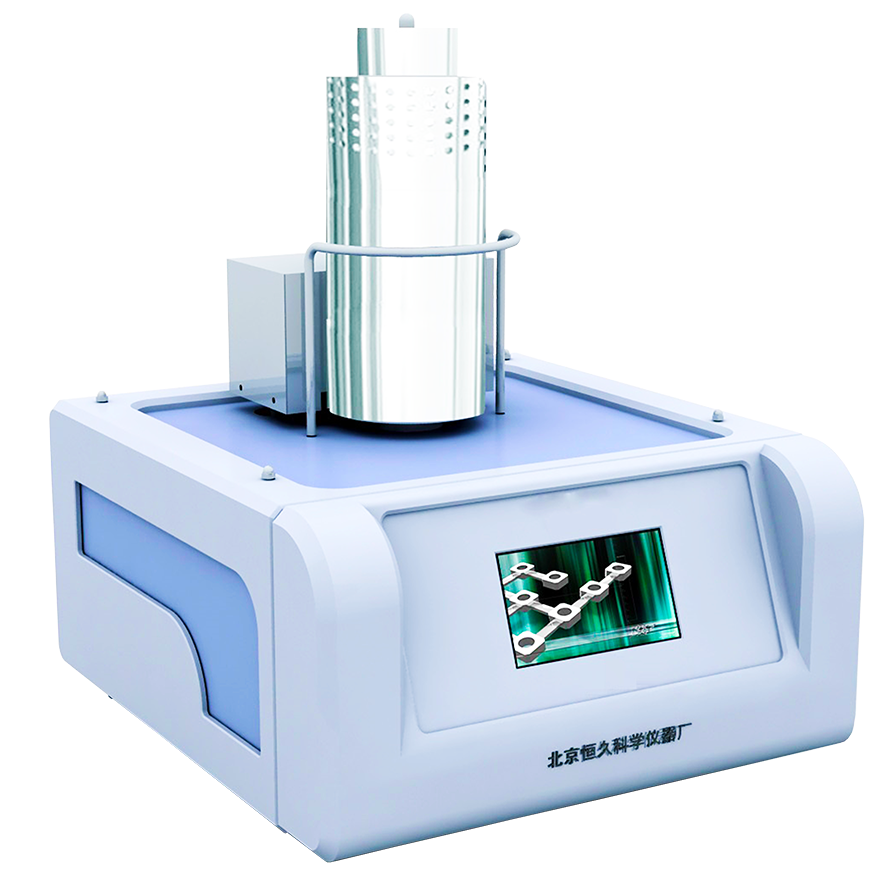Domestic thermal analysis instrument professional manufacturer
Dedicated to thermal analysis instrument for more than 20 years
Application of differential scanning calorimeter (DSC) in food
In recent years, the application of differential scanning calorimeter (DSC) has developed rapidly, especially in the field of polymers.It is often used to determine the melting heat, crystallinity and isothermal crystallization kinetics parameters of polymers, and to determine the glass transition temperature Tg;Polymerization, curing, crosslinking, decomposition and other reactions were studied. The measurement of reaction temperature or reaction temperature zone, reaction heat and reaction kinetic parameters has become one of the indispensable means in the research methods of polymers.

1, protein Different proteins have different functional properties, and functional properties are closely related to the structure of the protein. The degree of denaturation of the protein will affect the structure of the protein and thus further affect the functional properties of the protein. Proteins are denatured during food processing, which plays a very important role in certain properties of the food system. The process of protein denaturation is accompanied by the change of energy, which is measured by DSC.
2, starch DSC can be used to study the structure and properties of starch, especially the determination of thermodynamic properties. The fusibility and predicted structure of starch and starch mixture system can be analyzed by physicochemical method. DSC is a classical method to determine starch gelatinization and recovery. Standard curve method was used to determine the relationship between the gelatinized starch and DSC peak area, and then gelatinized degree was calculated according to the peak area of unknown samples. According to the relationship between the size of starch recrystallization molecules and the size of DSC peak area, the degree of starch regeneration can be determined. Moreover, during gelatinization and aging phase transition, accompanied by changes in energy, DSC can be used to measure.
3, grease grease in the heating and cooling process shows a lot of phase transformation caused by heating, this transformation is a function of temperature. DSC can be used to determine the changes of crystallization kinetics, composition and thermodynamic properties of oils and fats. Some people have tried to use DSC to monitor the oxidation process of oil in order to control oil processing. DSC can also be used to guide the development of new lipid substances, such as margarine, margarine, etc.
4, Water content in food can be expressed in three ways, namely, water content, water activity and dynamic mobility of water. Water activity is used to indicate the degree of combination of water and food in food, which can be divided into free water and bound water. Recent studies have shown that the dynamic mobility of water is a more reasonable representation of water-food interactions. DSC thermal analysis techniques can be used to determine free water in food systems.
5, grease oxidation Grease in the heating and cooling process shows a large number of phase transformation caused by heating, this transformation is a function of temperature. Differential scanning calorimetry (DSC) can be used to measure the heat absorbed or released during a sample phase transition or the heat capacity of the sample, the initial temperature at which the transition occurs, the temperature at which the maximum reaction occurs, and the temperature at which the reaction ends. It is based on this property that DSC studies the properties of various samples.
6, the detection of the presence of animal fat in vegetable oils Edible fats can be divided into plant fats and animal fats. Some traders adulterate vegetable oils with animal fats in pursuit of profit. Therefore, there is a need for a method to detect animal fats in vegetable oils to protect the interests of consumers. There have been studies using DSC to study the detection of animal fats in dairy and meat products. The adulteration of butter, lard and chicken oil in canola oil can also be monitored by DSC temperature records of cooling and heating processes.



